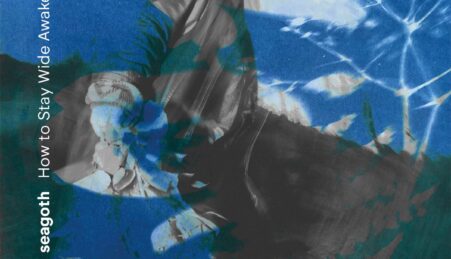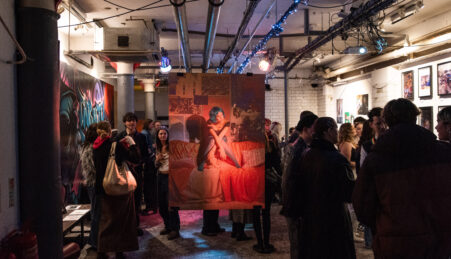By JP Burns
The Rosamond Prize celebrates its tenth birthday this year, with a varied set including a political sound-art piece and a dramatic song from the persona of a Foley Sound Artist.
The Rosamond Prize was established over ten years ago, by the Head of Composition at The Royal Northern College of Music Adam Gorb, and Professor of Poetry at Manchester Metropolitan University Michael Symmons Roberts.
The prize is intended to give students the opportunity to collaborate with artists outside of their usual field – poets are paired up with composers by way of a “speed-dating session.”. Any successful partnerships then go on to develop an original project, be it the setting of a poem to music or a piece of experimental musical theatre.
Adam Gorb discussed that the value of interdisciplinary collaboration is in the different ways of looking at things inherent in each art-form. Symmons Roberts added: “I think there’s a post-romantic myth about poetry, that it’s completely solipsistic. It has to begin in a moment of complete isolation where you’re only thinking about making this object. I think this is largely true, but that it’s important for poets to look at other kinds of makers. Poetry’s fundamentally musical, so to work with people who are dealing with music in another way, is difficult and interesting – to try and get those two bits of music to mesh together.”

Laura Bowler, third judge in the prize and former RNCM student, said, “There’s something about collaborating with writers that encourages composers to self-reflect a bit more in their process. If you know you have another form or subject that’s going to be part of it, it always encourages you to see your own work from a new perspective.”
Previous Rosamond partnerships have continued to collaborate, forming ongoing professional relationships such as Martin Kratz and Leo Geyer. Other projects that begun in the Rosamond have been extended by the composers and writers into full-length stage and opera works. It’s clear the collaboration between the two institutions itself is a valuable and productive one.

On being asked about the experience this year, RNCM composer Jose DelAvellanalCarreno said, “I think collaborating with others has been something incredibly enriching and satisfactory, and I have been able to learn a lot from working not only with poets but also with musicians, organizers and technicians. A really positive experience overall.”
Michael Symmons-Roberts is well placed to run the prize, having been prolific as a librettist himself for the pre-eminent British composer James MacMillan. Interestingly Michael cited W.H. Auden’s essays on how to write for composers as exemplary texts, but Auden himself, being one of the most celebrated and respected poets of the 20th century and some-time collaborator with Benjamin Britten, as far inferior a librettist in practice to some little known names as Eric Crozier and Myfanwy Piper.
Symmons-Roberts cited Auden in relation to Piper, commenting: “A libretto is a private letter from the poet to the composer.” It should be written as a gift, reacting to the writer’s style and methods.
The three judges acknowledged this in stating that the key criteria they are looking for in the winning piece is not in the accomplishment of the composition or the poem, but in the harmony between the two. They are looking above all for successful collaboration.
They found this quality of union between text and music in the highly commended 3 Phone Conversations by Grace Lillian Atkinson and Philip Rousiamanis. This piece humorously and beautifully presents the ‘found’ dialogue of one side of three phone conversations and presents them in three different contexts.
The first conversation was presented as solemn spoken word. The second (and most successful) as a heightened lyric in which the mundane and sometimes absurd language is raised into the high art-tradition with hilarious results. The third section employs the use of a tape-recorder playing single lines of ‘real’ dialogue recorded from a phone with musical antiphony – little abstract noise snippets that respond to each line of dialogue.
The overall winner was ‘The Widow Crane’ by Helen Kay and Robert Oswell, a sparse and really interesting narrative piece based on an ancient Indian folk-story. The text is full of vivid dramatic images and odd uses of language perfectly suitable to the piece.
The score unfolds in a jagged, intentionally awkward way perfectly in keeping with the character of a crab who murders the titular crane. The vocal part somehow manages to have the air of British folks song, while working under a quite minimal aesthetic constriction. It leaps between what sounds like three or four notes, up and down, yet was mesmerising. The longer the piece went on the more lyrical its strangeness became.








Leave a reply